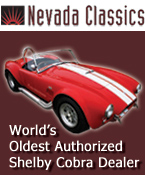U-Haul rejects Explorers
Firm outlaws trailer rentals to owners of popular Ford SUV, citing lawsuits
By Eric Mayne / The Detroit News
U-Haul International Inc. is forbidding its stores to rent trailers to customers who plan to tow with the Ford Explorer, saying it no longer can afford to defend product liability lawsuits linked to the best-selling SUV.
The unusual move by U-Haul comes after the Explorer appeared to have overcome lingering image problems associated with the Firestone tire debacle.
U-Haul — North America’s largest trailer rental company with more than 17,000 outlets — implemented the policy Dec. 22, saying the ban was not related to safety.
“U-Haul has chosen not to rent behind this tow vehicle based on our history of excessive costs in defending lawsuits involving Ford Explorer towing combinations,” the company told The Detroit News.
Joanne Fried, a U-Haul spokeswoman, declined to disclose how much the Phoenix-based company has spent defending lawsuits involving Explorers.
“The decision is not based on one accident,” she said. “It’s based on several different lawsuits going on for several years.”
Ford Motor Co. spokesman Jon Harmon called U-Haul’s decision “surprising and disappointing.”
“This is all about runaway litigation and trial lawyers forcing businesses to make unfortunate decisions for fear of lawsuits,” Harmon said.
U-Haul was embroiled in a lawsuit that Bridgestone/Firestone settled out of court in September. It involved three college students who were injured in 1999 when their Firestone-equipped Explorer overturned while pulling a U-Haul trailer.
However, Fried and U-Haul would not release details about the accidents cited in its lawsuits.
A bulletin issued to U-Haul dealers last month, which was obtained by The News, said the company’s move was “based on the negative perceptions of Ford Explorers ... we are separating ourselves from the negative public perception and its potential consequences.”
U-Haul has no ban on rentals to Mercury Mountaineer owners, although the vehicle is mechanically a carbon copy of the Explorer.
“We’ve had no issues with the Mercury Mountaineer,” Fried said.
The slight is the latest in a series of setbacks that have dogged the Explorer, America’s top-selling SUV and the sixth-best selling vehicle in 2003.
In August 2001, Firestone was forced to recall 14.4 million defective tires — equipped mostly on Explorers. The treads on the tires often separated, causing drivers to lose control of their Explorers and often roll over.
Federal regulators linked 271 deaths and more than 800 injuries to the defective tires.
Ford recalled an additional 13 million Firestone tires in May 2001.
Ford and Bridgestone/Firestone Inc. have spent millions of dollars to settle product liability cases over the tires and SUV.
The National Highway Traffic Safety Administration said in February 2002 that there was not enough evidence to open a formal defect investigation of the Explorer.
In the wake of the widely publicized Firestone tire recall, the Explorer has become a favorite target among product liability lawyers, said Sid Gilreath, a Knoxville, Tenn., lawyer involved in product liability litigation for more than three decades.
The number of lawsuits involving Explorers isn’t necessarily a reflection of its performance characteristics, Gilreath said.
“The lawyers who do those (cases) know that we have more documentation on the Explorer,” Gilreath said.
Ford maintains the Explorer is safe. In 2002, NHTSA traced Explorer tire failures and resulting rollovers to tire manufacturing flaws.
Still, the controversy prompted federal regulators to adopt ratings that rank SUVs based on their propensity to roll over.
The test used to set ratings recently was revised to better reflect real-world driving conditions.
The 2003 Ford Explorer was among the first vehicles subjected to the new test. The results are pending, said Rae Tyson, a spokesman for the National Highway Traffic Safety Administration.
Acknowledging the same legal cost pressures U-Haul cited in its rental ban, Harmon said Ford has settled Explorer lawsuits out of court, adding the company is 8-0 in cases that have gone to juries.
Both U-Haul and Ford expressed regret that the move will inconvenience Explorer owners, but so far, no effects have been felt in the Detroit area.
“We haven’t lost any business because of it,” said Sharon Patterson, assistant manager of the U-Haul Center at Seven Mile and Van Dyke.
George Hanna, manager of U-Haul Center Windsor, said existing reservations will be honored, adding the new policy “hasn’t had any impact here.”
Fried said the rental ban applies to all model years, even though Explorer was redesigned in 2002 — the same year the SUV improved its NHTSA rollover rating from two stars to three, and was voted “tow vehicle of the year” by Trailer Boats magazine.
“It’s a perfectly capable tow vehicle,” said Stuart Bourdon, automotive editor of the California-based publication.
“The bottom line is, if you don’t overload the vehicle and you’ve got the proper tires with the appropriate ratings and they are properly inflated and you drive with common sense, you really shouldn’t have any problems.”
Motorists often exceed the towing limits of their vehicles, said John Oraha, sales manager at Avis Ford in Southfield. Engines and suspensions must be a match for the job, he said, so motorists should ask themselves questions such as: “Do you have a V-8? Do you have a tow package?”
Jim Hall, former chairman of the National Transportation Safety Board, which oversees NHTSA, said the large number of Explorer models on the road must be factored into accident frequency.
And in U-Haul’s case, trailers can be “quite difficult to handle,” said Hall, who now runs Hall and Associates, a safety and security consulting agency in Washington.
Ford launched the Explorer 14 years ago and this month will deliver its 5 millionth unit.
You can reach Eric Mayne at (313) 222-2443 or
emayne@detnews.com.


